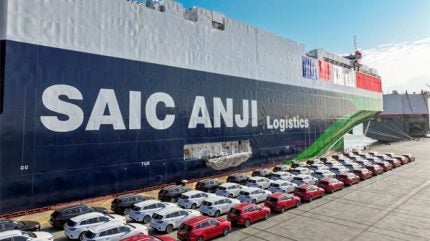
The European Union (EU) and China are close to an agreement on tariffs for Chinese electric vehicle (EV) imports into the EU, reported Reuters, citing a German broadcaster.
Speaking to n-tv, Bernd Lange, chair of the trade committee of the European Parliament said: “We are close to an agreement: China could commit to offering e-cars in the EU at a minimum price.
“This would eliminate the distortion of competition through unfair subsidies, which is why the tariffs were originally introduced.”
The European Commission was not available to comment on the matter.
Last month, the EU increased tariffs on Chinese-built EVs to up to 45.3%.
This decision, part of a high-profile trade investigation, has caused division in Europe and provoked a response from Beijing.

US Tariffs are shifting - will you react or anticipate?
Don’t let policy changes catch you off guard. Stay proactive with real-time data and expert analysis.
By GlobalDataThe tariffs, effective from 30 October, aim to counteract what the EU describes as unfair subsidies, including preferential financing, grants, and below-market prices for land, batteries, and raw materials.
Despite these tariffs, negotiations continue, raising hopes, especially among German carmakers, for a resolution to avoid a trade dispute.
In response, China’s chamber of commerce to the EU expressed disappointment with the “protectionist” EU measure.
Separately, Beijing has instructed its auto manufacturers to pause investments in EU countries supporting additional tariffs on Chinese-built EVs.
This move is seen as an attempt to gain leverage in discussions with the EU.
China aims to prevent a significant decline in EV exports to Europe, a crucial market accounting for over 40% of its EV exports in 2023.
With the US and Canada imposing 100% tariffs on Chinese-made EVs, a decrease in exports to Europe could exacerbate domestic overcapacity issues for Chinese automakers.
Italy and France, while supportive of Chinese investments, have raised concerns about the impact of affordable Chinese EVs on European manufacturers.
Despite the tariffs, Chinese EV firms aim to maintain their competitiveness in the EU market.
Industry officials at the China International Import Expo in Shanghai recently highlighted the production and pricing advantages that make Chinese EVs attractive globally.



